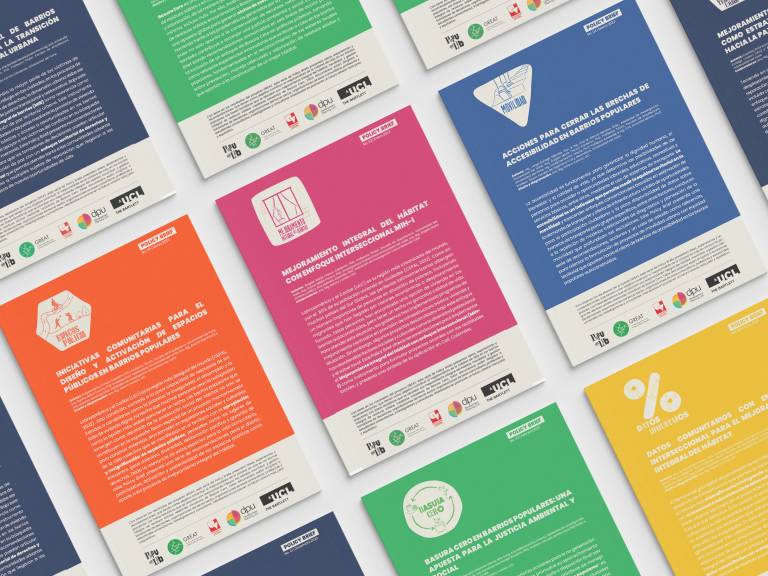Ten policy briefs published on upgrading, mobility and zero waste for self-built neighbourhoods
8 January 2024
The GREAT project featuring DPU's Dr Catalina Ortiz has released ten policy briefs on neighbourhood upgrading, mobility, and zero waste for self-built neighbourhoods. The project concludes with these policy briefs to influence urban governance and the implementation of the SDGs.

How to improve the quality of life in 'popular' neighbourhoods? This is the guiding question behind the series of policy briefs developed within the Gridding Equitable Urban Futures in Areas of Transition (GREAT) project.
For the past three years the team across UCL including DPU’s Dr Catalina Ortiz and Gynna Millan, and Universidad del Valle (Colombia), alongside Lancaster University, Secretariat of Social Housing and Habitat of Cali has worked on three lines of research: comprehensive neighborhood upgrading, mobility, and integrated solid waste management through Zero Waste initiatives.
The policy briefs present ideas, experiences, and recommendations aimed at contributing to enhancing the quality of life in popular neighbourhoods. The thematic lines addressed are relevant to the current context of most cities in the Global South, starting from the Latin American case, where public policies recognising the diversity and needs of populations inhabiting areas considered informal settlements are required.
The documents are intended for decision-makers, third-sector organisations, community-based organisations, university professors and students, researchers, and consultants interested in promoting a fairer and more equitable urban future.
The series of policy briefs includes three types of documents with different objectives, scopes, and audiences. They are:
- Thematic positioning: providing insights into issues not currently prominent in public policy agendas and relevant conceptual foundations for their formulation.
- Prioritisation definition based on context: based on empirical evidence, they expose territorial situations and their implications to guide the (re)definition of public policy priorities through the use of innovative methodologies.
- Guidelines for action: synthesising findings from various experiences to offer specific guidelines for territorial intervention by various actors.
The GREAT project, funded by ESRC-GCRF-UKRI aims to propose new perspectives on popular neighbourhoods located in transition spaces, where the line between the 'formal city' and the 'informal' blurs and becomes invisible.
In the Colombian city of Cali, GREAT focused on making direct contributions to territorial processes to improve the quality of life in popular neighbourhoods, in partnership with the Mayor's Office of Santiago de Cali, particularly the Secretariat of Social Housing and Habitat, and the communities of Brisas de las Palmas, La Arboleda, Pampas del Mirador, Alto Polvorines located in District 18 at the south-west of the city. Therefore, some of the documents use Cali and District 18 as case studies to showcase processes and learnings from the practice.
Dr Catalina Ortiz is Co-programme Lead of Building and Urban Design in Development MSc.
 Close
Close

